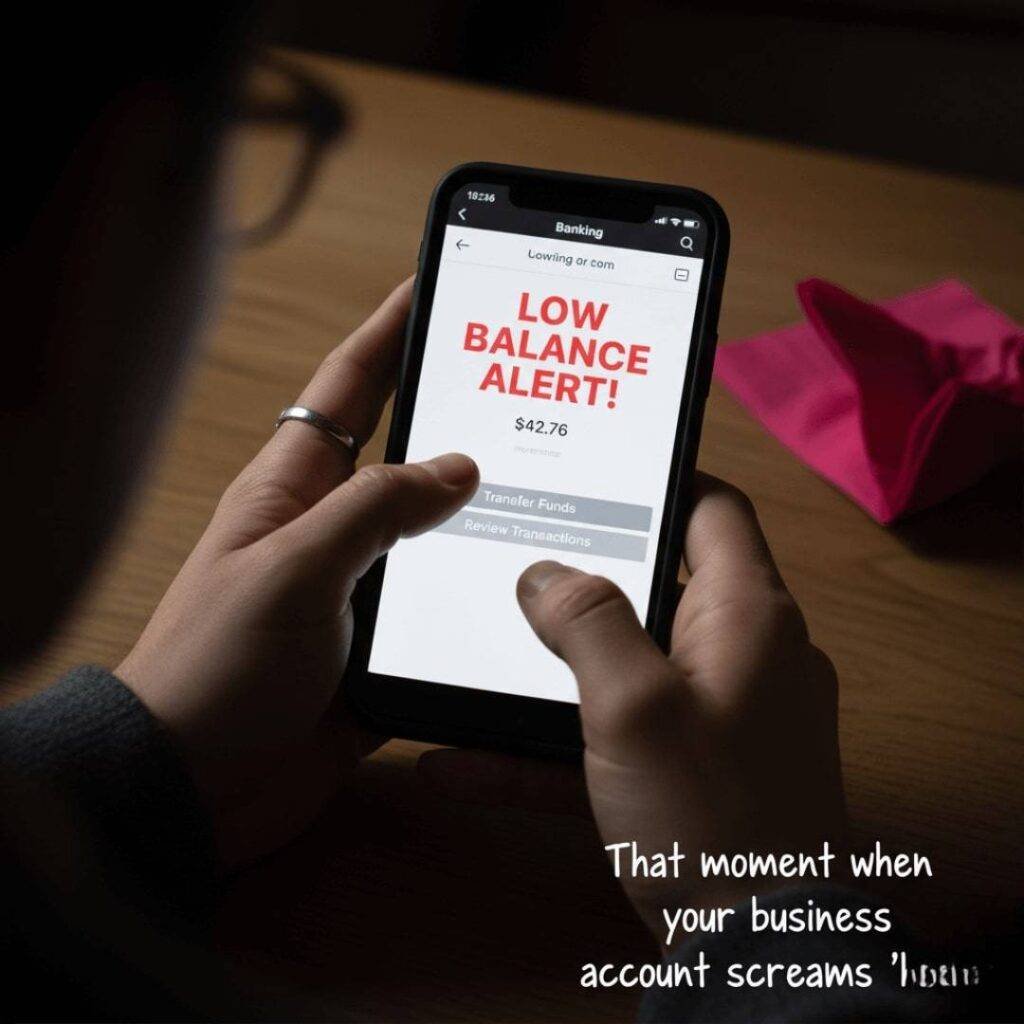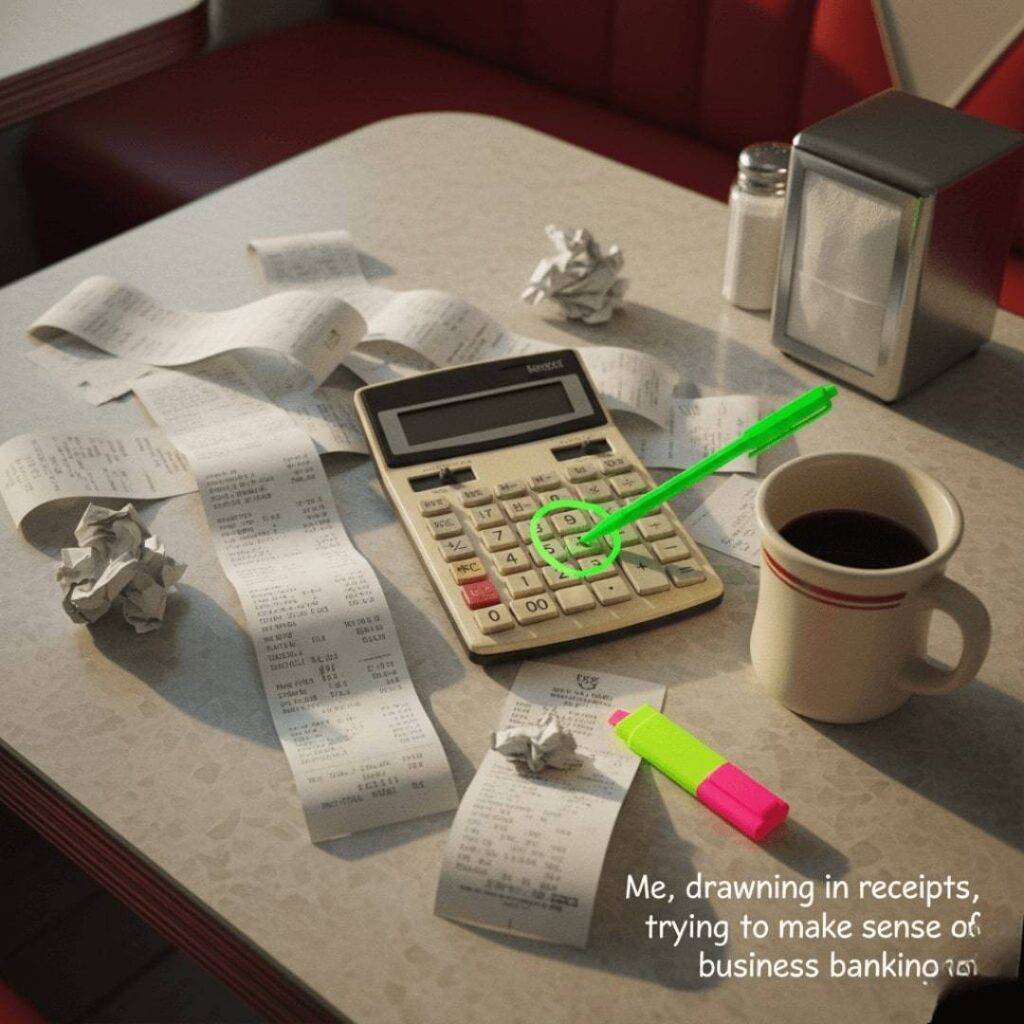My Messy Journey with Business Accounts
Business accounts, man, they’re like that one friend who’s super reliable but also a total pain to figure out. I’m sitting here in my tiny home office in Austin, Texas, with the AC humming and a stale bagel on my desk, trying to make sense of my own entrepreneurial banking chaos. I swear, the first time I opened a business account, I thought I’d cracked the code to adulting. Spoiler: I didn’t. My coffee’s cold, my inbox is screaming, and I’m still learning how to not screw this up. Here’s my raw, unfiltered take on business accounts for entrepreneurs, straight from the trenches of my own mistakes.
Back in 2022, I started my freelance graphic design gig, thinking I could just use my personal checking account for everything. Big nope. I remember sitting in a noisy coffee shop on South Congress, scrolling through Chase’s business banking page on my cracked phone screen, sweating because I’d just gotten hit with a $15 “account maintenance” fee I didn’t see coming. That was my wake-up call. Business accounts aren’t just personal accounts with fancier names—they’re a whole different beast.
Why Business Accounts Are Non-Negotiable
Look, I get it, opening a business account feels like signing up for another dentist appointment. But separating your personal and business finances is, like, crucial. I learned this the hard way when I accidentally paid for a client’s logo project with my grocery money. My fridge was empty for a week, and I was eating instant ramen in my car outside a client meeting. Here’s why you need a business account, no cap:
- Taxes are less hellish: Mixing personal and business transactions is like trying to untangle Christmas lights in July. A dedicated business account makes tracking expenses for tax season way easier. Check out the IRS’s small business tax guide for more on this.
- You look legit: Clients don’t wanna send payments to “Jimmy’s Savings Fun Times.” A business account with your company name screams “I’m serious about this.”
- Avoid fees and audits: Banks and the IRS get sus when your personal account is handling big client payments. I once got a “friendly” letter from my bank asking about a $5,000 deposit. Cue panic.

Picking the Right Business Account (Without Losing Your Mind)
Choosing a business account is like dating apps—too many options, and most of them are gonna ghost you with hidden fees. I’m currently staring at my laptop in my cramped apartment, with my cat knocking over a water glass, trying to remember which bank I picked and why. Here’s what I’ve learned after wasting hours on hold with customer service:
What to Look for in a Business Account
- Low or no fees: I got burned by a “free” account that charged me $12 a month unless I kept a $2,000 balance. Bankrate has a solid rundown of fee-free options.
- Online banking that doesn’t suck: If the app crashes every time you try to transfer money, you’ll cry. I did, in a Target parking lot, when a client payment didn’t go through.
- Integration with tools: If you use QuickBooks or PayPal, make sure the account plays nice. I spent a whole weekend syncing my Novo account with my invoicing software, and it was a game-changer.
- Local branches (if you’re old-school): I’m in Austin, so I like banks with ATMs I can hit up without driving to Oklahoma. Check what’s near you.
Pro tip: Compare at least three banks. I didn’t, and I regretted it when I found out BlueVine offered 1% interest on checking, and I was stuck with zero.
My Biggest Rookie Mistake
I’m gonna be real—I once picked a bank because they gave me a free branded water bottle. I’m not proud. That account had a $35 overdraft fee that hit me when a client paid late, and I was out here eating cereal for dinner. Always read the fine print, y’all. Look for overdraft protection or accounts that don’t penalize you for being a broke entrepreneur.

Managing Business Accounts Like a (Slightly) Competent Human
Okay, so you’ve got your business account. Now what? I’m no financial guru—my desk is currently covered in Post-it notes with random numbers scribbled on them—but here’s how I keep my business accounts from spiraling into chaos:
- Track everything: I use Wave to categorize expenses because I’m too scatterbrained to do it manually. It’s free and saves me from tax-season meltdowns.
- Set up alerts: My bank texts me when my balance dips below $500. Saved my butt when I almost forgot a subscription payment.
- Budget for fees: Even “free” accounts have sneaky costs. I set aside $20 a month for random bank nonsense.
- Review monthly: I block off an hour every month (usually with a beer) to check my transactions. Found a $50 error once because I wasn’t paying attention.
The Time I Almost Lost It
Last summer, I was at a barbecue in Zilker Park, pretending to be a functional adult, when I got a notification that my business account was overdrawn. I’d forgotten about an auto-renewing software subscription. I was mortified, hiding behind a picnic table, frantically transferring money from my personal account while my friends were tossing a frisbee. Lesson: Always double-check recurring payments.

Common Pitfalls and How to Dodge Them
Business accounts for entrepreneurs sound simple, but they’re a minefield. Here’s what I’ve tripped over, so you don’t have to:
- Ignoring minimum balances: Some accounts waive fees if you keep a certain amount. I didn’t, and I paid for it.
- Not shopping around: I stuck with my first bank for way too long. Compare rates and perks every year.
- Forgetting about credit: Some business accounts offer credit lines. I didn’t know this and missed out on a cash flow buffer when a client ghosted me.
Wrapping Up This Chaotic Chat
So, yeah, business accounts are a pain, but they’re also your ticket to looking like a legit entrepreneur. I’m still figuring this out, sitting here with my cat glaring at me for not refilling her food bowl. My biggest takeaway? Be honest with yourself about what you need from a bank, and don’t be afraid to switch if it’s not working. If I can survive my own dumb mistakes, you can too. Got questions or horror stories about business banking? Drop them in the comments—I’m all ears.
Call to Action: Check out NerdWallet’s business account comparisons and pick one that doesn’t make you wanna pull your hair out. Then tell me how it goes!




